




What Are Antonyms and Synonyms? Key Differences and Examples
There are many pairs of words in the English language that have slight differences between them and such similar words are called synonyms, while the opposite ones are called antonyms. The sentences become a lot clearer and have a lot more sense when one uses more uncommon words that convey the same meaning rather than the same old frequently used words.
Words with Similar and Different Meanings
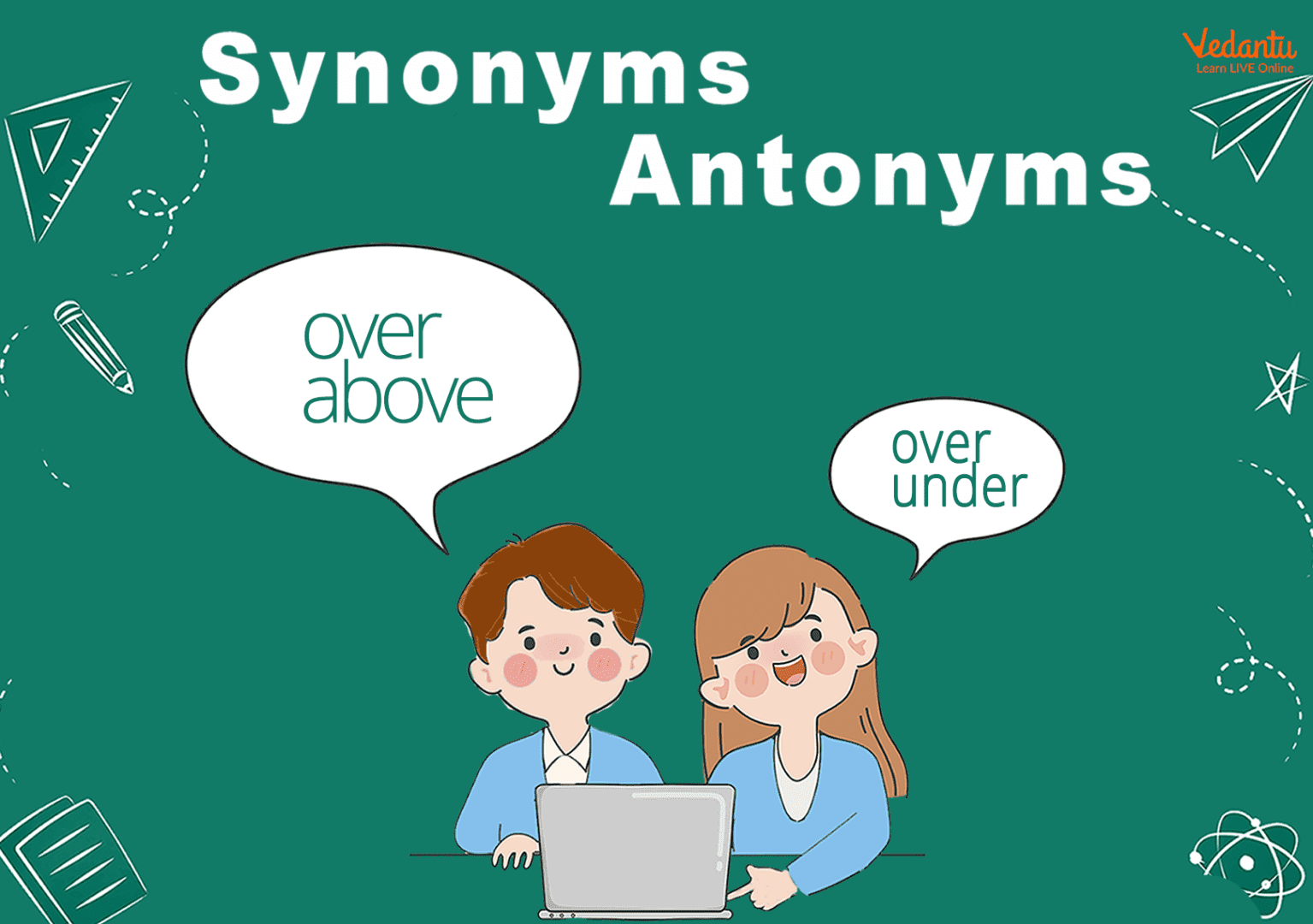
Synonyms and antonyms
Basic Idea About Synonyms and Antonyms
A synonym is a word, or in some situations a phrase, that has the same meaning in the same language as another word. Even though the meanings aren't identical, the terms have extremely comparable meanings in context.
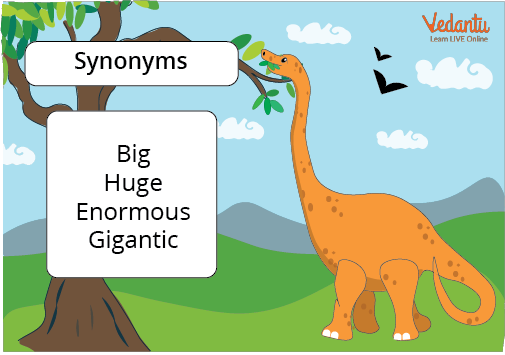
Synonymous words
An antonym, as opposed to a synonym, is a term that has the exact opposite meaning to another word in the same language. It comes from the Greek words "anti" and "onym," which mean "opposite" and "name," respectively. The antonym for hot, for example, is cold, and the antonym for up is down.
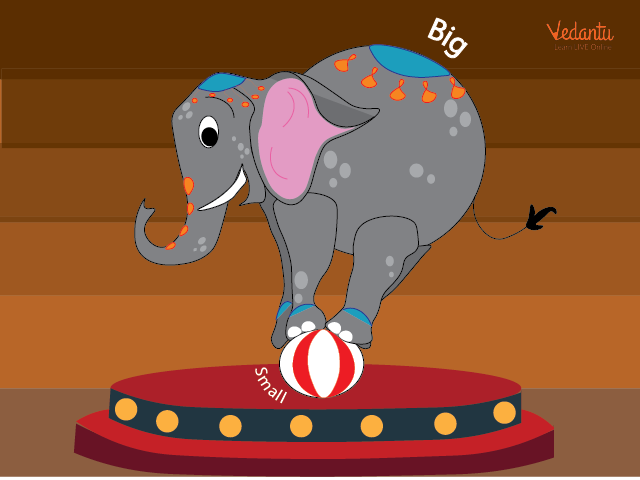
Antonymous words
What is a Synonym?
Good synonyms are words that have the same or almost the same meaning as another term. Some synonym examples include jump, leap, bounce, and hop, which means they all have the same (or very similar) meanings. Another example can be eagerly. Its synonyms are impatiently, anxiously, willingly, keenly, gladly, readily, etc.
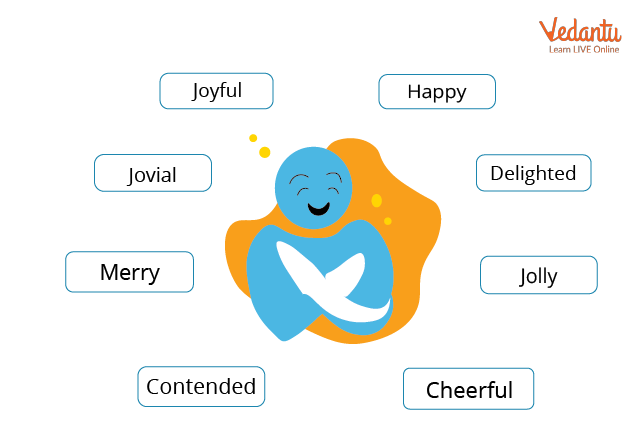
Examples of synonyms
Meaning of Antonyms
In the English language, antonyms are extremely valuable. Knowing what the opposite of a difficult word implies will help you understand the meaning and context of that word. Without changing the meaning of a statement, using antonyms can be a fun way to spice things up.
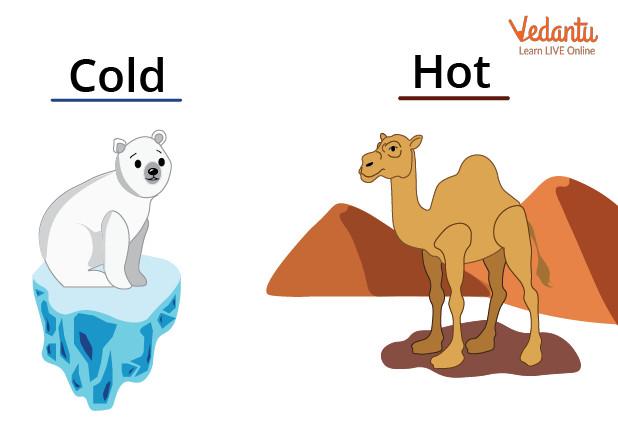
Examples of antonyms
Understanding Antonyms and Synonyms Through Parts of Speech
Learning synonyms and antonyms together is a wonderful way to improve your vocabulary. Synonyms and antonyms are a fantastic way to start improving your vocabulary.
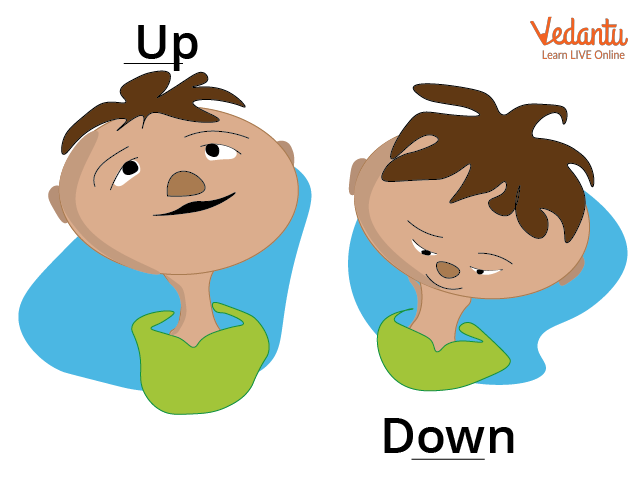
Up Vs Down
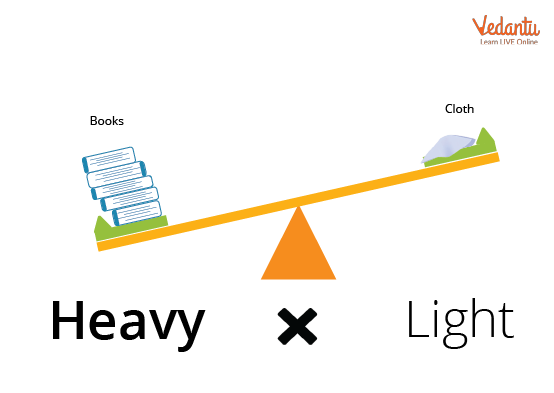
Heavy Vs Light
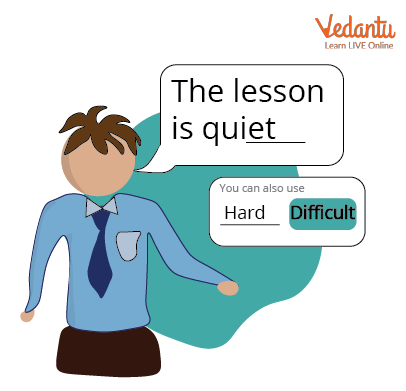
Examples of verb synonyms
Points to Remember
While solving synonyms and antonyms, keep the following points in mind:
Remove the responses in the options presented that aren't relevant.
Keep an eye out for words that are difficult to understand.
Practice on a daily basis.
Expand your vocabulary.
Exercises for Practice
Now that you have gone through the important points about antonyms and synonyms, the following exercises will help you practice and make progress.
1. Select the most appropriate synonym for the highlighted term:
1. He drives very quickly.
A. Pace
B. Fast
C. Swiftly
D. Readily
2. Match the words with their respective antonyms.
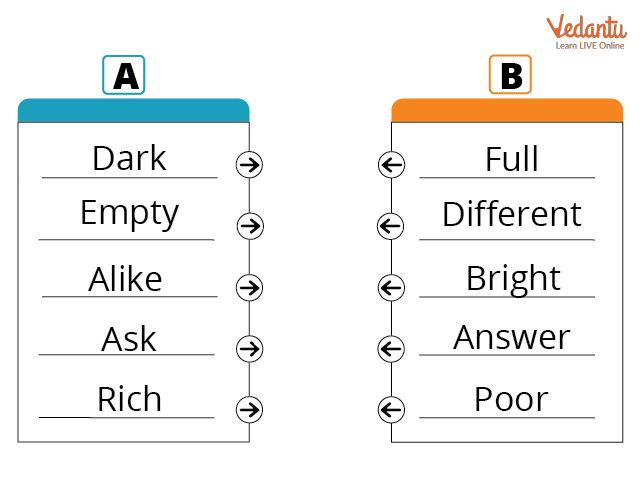
Match the following worksheet
3. Using the words given in the cloud, write the antonyms and synonyms for the words.
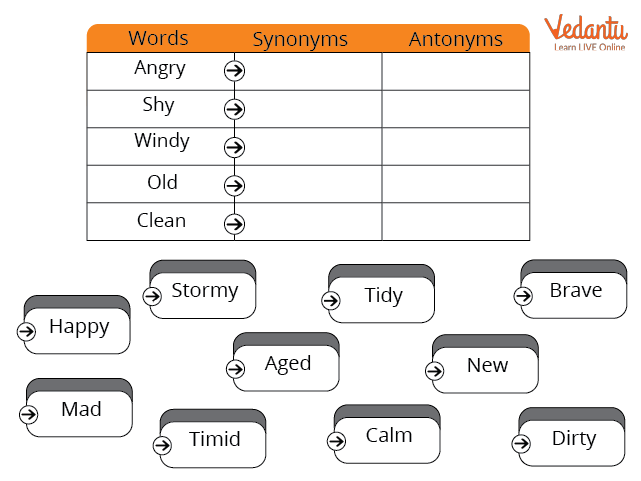
4. Write the synonyms for the following words:
1. BRIEF
A. Short
B. Small
C. Tiny
D. Little
2. ALERT
A. Danger
B. Observant
C. Watchful
D. Intelligent
FAQs on Antonyms and Synonyms Explained: Unlock Stronger Language Skills
1. What are the benefits of antonyms and synonyms?
When you use synonyms in your speech or writing, it makes it richer and more "colourful." Using antonyms might help you highlight a point, and properly explain the similarities or differences in the topic of conversation. Antonyms and synonyms, give your speech or writing style more clarity.
2. What are some examples of how synonyms and antonyms can be utilised to teach vocabulary?
Learning synonyms and antonyms together is a wonderful way to improve your way of talking. The common words used by children in their daily activities can be considered here like ‘great’ can be replaced with ‘excellent,’ ‘very bad’ can be replaced with ‘terrible.’ To help you remember new terminology, you can make a chart with synonyms and antonyms, as well as example phrases.
3. What is the distinction between synonyms and antonyms?
While the words sound similar, there is a huge difference in the meaning of synonyms and antonyms. Synonyms are words with similar meanings for example, 'huge' is a synonym for 'big.' An antonym, on the other hand, occurs when the second word is the polar opposite of the first, as in the case of 'large' versus 'small.'





















